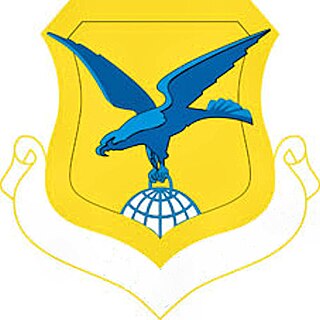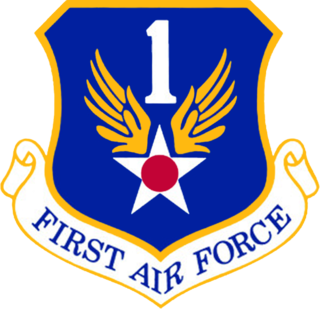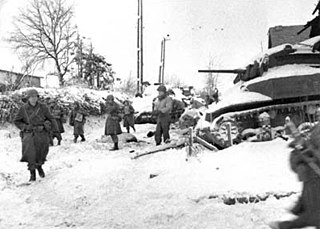
The 16th Airlift Squadron is one unit of three active duty Boeing C-17 Globemaster III squadrons at Joint Base Charleston, South Carolina.

The 61st Airlift squadron is part of the 19th Operations Group and operates Lockheed C-130 Hercules aircraft from Little Rock Air Force Base, Arkansas. The unit predominantly deploys in support of Operation New Dawn and Operation Enduring Freedom.

The 15th Airlift Squadron is part of the 437th Airlift Wing at Charleston Air Force Base, South Carolina. It operates Boeing C-17 Globemaster III aircraft supporting the United States Air Force global reach mission worldwide.

The 14th Airlift Squadron is part of the 437th Airlift Wing at Charleston Air Force Base, South Carolina. It operates Boeing C-17 Globemaster III aircraft supporting the United States Air Force global reach mission worldwide.

The 37th Airlift Squadron is part of the 86th Airlift Wing at Ramstein Air Base, Germany. It operates Lockheed C-130J Super Hercules aircraft providing theater airlift.

The 96th Airlift Squadron is part of the 934th Airlift Wing at Minneapolis-St Paul Joint Air Reserve Station, Minnesota. It operates Lockheed C-130 Hercules aircraft supporting the United States Air Force global reach mission worldwide.

The 301st Airlift Squadron is a United States Air Force Reserve squadron, assigned to the 349th Operations Group, stationed at Travis Air Force Base, California. It is an associate unit of the active duty 21st Airlift Squadron of the 60th Air Mobility Wing.

The 309th Airlift Squadron is part of the 86th Airlift Wing at Chièvres Air Base, Belgium. It operates a single C-37 aircraft providing executive airlift for NATO.

The 71st Special Operations Squadron is part of the 58th Special Operations Wing at Kirtland Air Force Base, New Mexico. It operates Bell Boeing CV-22 Osprey conducting special operations flying training.

The 74th Air Refueling Squadron is a United States Air Force Reserve squadron, assigned to the 434th Operations Group, stationed at Grissom Joint Air Reserve Base, Indiana.

The 32d Flying Training Squadron was last part of the 71st Flying Training Wing based at Vance Air Force Base, Oklahoma. It operated Beechcraft T-1 Jayhawk aircraft conducting flight training. It was inactivated on 14 September 2012.

The 440th Operations Group is an active United States Air Force Reserve unit. It is the flying component of the Twenty-Second Air Force 440th Airlift Wing, stationed at Pope Air Force Base, North Carolina.

The 439th Operations Group is an active United States Air Force Reserve unit. It is the flying component of the Twenty-Second Air Force 439th Airlift Wing, stationed at Westover Air Reserve Base, Massachusetts.

The 436th Operations Group is an active United States Air Force unit. It is the flying component of the Eighteenth Air Force 436th Airlift Wing, stationed at Dover Air Force Base, Delaware.

The 434th Operations Group is an active United States Air Force Reserve unit. It is the flying component of the Fourth Air Force 434th Air Refueling Wing, stationed at Grissom Air Reserve Base, Indiana.
The 80th Troop Carrier Squadron is an inactive United States Air Force unit. Formed in April 1943, its last assignment was with the 436th Troop Carrier Group, based at Standiford Municipal Airport, Kentucky. It was inactivated on 16 April 1951.
The 98th Troop Carrier Squadron is an inactive United States Air Force unit. Its last assignment was with the 440th Troop Carrier Group, based at Wold-Chamberlain Field, Minnesota. It was inactivated on 4 May 1951.

The 304th Expeditionary Airlift Squadron is a provisional United States Air Force unit. It is assigned to the 13th Air Expeditionary Group, based at Hickam Air Force Base, Hawaii.

The 306th Expeditionary Airlift Squadron is a provisional United States Air Force unit. It is assigned to Air Mobility Command, and operates from Joint Base Andrews, Maryland.
The 59th Troop Carrier Squadron is an inactive United States Air Force unit. It was last assigned to the 61st Troop Carrier Group, based at Waller Field, Trinidad. It was inactivated on 31 Jul 1945.

































